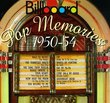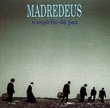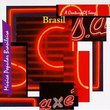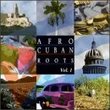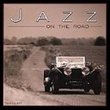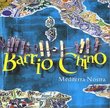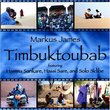| All Artists: Carlo Gesualdo, The Hilliard Ensemble Title: Gesualdo: Tenebrae Members Wishing: 2 Total Copies: 0 Label: ECM Records Release Date: 4/18/2000 Album Type: Original recording reissued Genre: Classical Styles: Opera & Classical Vocal, Chamber Music, Historical Periods, Classical (c.1770-1830) Number of Discs: 2 SwapaCD Credits: 2 UPC: 042284386722 |
Search - Carlo Gesualdo, The Hilliard Ensemble :: Gesualdo: Tenebrae
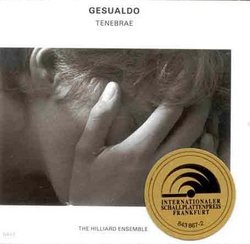 | Carlo Gesualdo, The Hilliard Ensemble Gesualdo: Tenebrae Genre: Classical
Carlo Gesualdo's name will always conjure up a special image: When he discovered that his wife had been unfaithful, he had her and her lover murdered and left on his palace steps, impaled on the same sword. Ghastly, but gr... more » |
Larger Image |
CD DetailsSynopsis
Amazon.com Carlo Gesualdo's name will always conjure up a special image: When he discovered that his wife had been unfaithful, he had her and her lover murdered and left on his palace steps, impaled on the same sword. Ghastly, but gripping--and, oddly enough, his harmonies, dissonances, upsetting chromatic passages, and general complexity can also be seen as "ghastly but gripping." Gesualdo was wealthy enough that he never had to depend on a patron; he could therefore write whatever he pleased, in whatever, far-out (to this day), experimental style he chose. His Tenebrae Responsoria are particularly thorny--they're a part of the religious service in which the church's candles are extinguished one at a time until the congregation is sitting in darkness--and Gesualdo's music is incredibly deep and troubling. And, I might add, magnificent. The Hilliards perform them ideally, with great technical accuracy, a sense of the weightiness of the text and music, and simply beautiful sound. This is an example of what makes the Hilliards so special. --Robert Levine Similarly Requested CDs
|
CD ReviewsAwe-inspiring and terrifying Sator | Sydney, Australia | 06/13/2005 (5 out of 5 stars) "Don Carlo Gesualdo (1560 - 1613) was an aristocrat rich, artistic, and - as the second son of a noble Neapolitan family - free to indulge his passion for music. But when his eldest brother died, it was decreed that Don Carlo should carry on the line. The bride found for him - Donna Maria d'Avalos - was the greatest beauty in town. Don Carlo fathered a son, after which he lost interest in sex. But it still interested his wife. One day his uncle confided to him that she was involved in a torrent affair with the handsome Duke of Andria, in which they would "invite each other to battle on the fields of love". Alerted to the fact that Don Carlo now knew of their liaisons, the Duke tried to persuade Donna Maria to end the affair, but she proclaimed she would sooner die. Thus was the scene set for Don Carlo's historic act. One day in October of 1590 he secretly disabled his locks, then set out to hunt only to sneek back with a gang of henchmen in the still of night. The chronicles detail what happened next: about the night-dress Donna Maria asked to be put out on the bed, about the maid posted as sentinel, and the commotion as Don Carlo and his men kicked in the door to find the pair "in flagrante delicto di fragrante peccato". About the shots and multiple sword-thrusts, and the way Don Carlo personally skewered his wife to the floor all the while repeating to himself "I do not believe she is dead". He dragged their bodies onto the stairs, for all the horrifed towns peope to gape at next morning, posting a notice explaining why he had killed them. The Duke was still clad in a woman's night-gown, while Donna Maria's "wounds were all in her belly, and especially in those parts which ought to be kept honest". Don Carlo withdrew to his residence in Ferrra where his nobility ensured he escaped trial, only to find himself "afflicted by a vast horde of demons which gave him no peace unless twelve young men, whom he kept specially for the purpose, were to beat him violently three times a day, during which operation he was wont to smile joyfully." Don Carlo built a private chapel, completed in 1592. Inside hung a painting depicting the Virgin Mary and saints all pointing to the sinner, Don Carlo, while the fires of purgatory burnt below - out of which angels pull the figures of a man and a woman. Could these be the murdered lovers before which Don Carlo implored forgiveness? His music became filled with an obession with themes of guilt, sin, pity, and death - even the joy of love being mixed with a fascination with pain: 'dolorosa gioia', such 'joyous pain' being a typical musical outburst. Never has there been a composer with a more macabre background than this, nor yet so muscially so obsessionally fascinating. Stravinsky began his famous foreword to Glenn Watkins' biography of Gesualdo with the words "musicians may yet save Gesualdo from musicologist, but certainly the latter have had the best of it until now". This recording of Gesualdo comes closest to saving him from the musicologists. The Hilliards fearlessly journey through the vertigo inducing chromatic spirals leading into the strange, visionary world of this dark genius - a world into which other ensembles fear to treat, instead resorting to a sanitization of the music to remove its sting - though who could blame them for wanting to? Particulary important is presence of the more harshly piecing tones of a counter-tenor in place female of sopranos, whose smooth dulcet tones rob the music of its visionary strangeness. Although the Hilliard Ensemble had been singing this music for decades, David James still said: "We don't sing it the way we sing most early music - we sing it as though it was contemporary. Even if you didn't know the facts, you'd still know it couldn't have been written by a completely sane man." Tenerbrae means darkness, and the darkest ritual of the year suited Gesualdo tempermentally in which each candle is extinguished one by one leaving only one left burning in the darkness. Although his sacred works are less ostentatious in their chromaticisms and eccentricities than his madrigals, the power of his proto-Baroque declamatory writing coupled with the audacity of the writing is quite breathtaking to listen to. This is an extraordinary - and absolutely essential - recording that delivers in full measure. The recorded sound really is superb and amongst the finest of a capella music as I have ever heard. It quite rightly won the deutschen Schallplattenkritik award. Diego Fischerman wrote in Goldberg early music magazine that: "the Hilliard Ensemble's recording (on this occasion the group is made up of the countertenors David James and Ashley Stafford, the tenors John Potter, Rogers Covey-Crump and Mark Padmore, the baritone Paul Hillier and the bass David Beavan) is truly unsurpassable, both in precision and dramatic intensity. The recording, made by the engineer Peter Laenger for ECM at Douai Abbey is outstanding for its realism and spatial conception." Iain Fenlon in Gramophone magazine wrote that "these performances reveal a rare understanding of the inherent tensions of the music, both in terms of local detail and overall shape, and explicate them with great technical and musical artistry. I doubt that they could be bettered." I tend to agree and as the only complete recording available of the Tenebrae, this is my personal first choice, despite some stiff competition from A Sei Voci, the Taverner Consort, the Tallis Scholars and the King's Singers all recording only select parts. These performaces ensure that the Gesualdo legend lives on." Expressive, powerful performances of mannerist master Tobytime | Morrisville, NC | 10/05/2000 (5 out of 5 stars) "Gesualdo, the master of late-Renaissance mannerism, is given a spectacular reading here, with the Hilliard Ensemble in full flower. The tightly-bent harmonies will have you squirming delightfully in your headphones. A word of advice: Listen to these alone, unless your friends and family enjoy sudden outbursts of harmonies you'll be tempted to try. Don't worry though: If you have any troubles, the rock-solid Hilliards will carry you through." Nothing Like It. Truly. Michael | Wisconsin, USA | 08/04/2009 (5 out of 5 stars) "I agree with those reviewers that emphasize the gutsiness of the Hillards' take on the in-you-face contrapuntal/harmonic twists this music exacts from the singers. I've heard Gesualdo by other groups, and, yes, they do swerve away from "doing the notes on the page" to some extent. If these are the sounds Gesualdo heard in his head, then there is some credibility to the testimony of those who thought he was crazy. What is important in these performances is that the Hilliards have made the effort to penetrate to the "art" in the musical pain and have managed to express it with a sharpness of phrasal articulation unparalleled in anything I have ever heard by any other singers doing any other composer. As I said: there's literally nothing like it."
|

 Track Listings (18) - Disc #1
Track Listings (18) - Disc #1